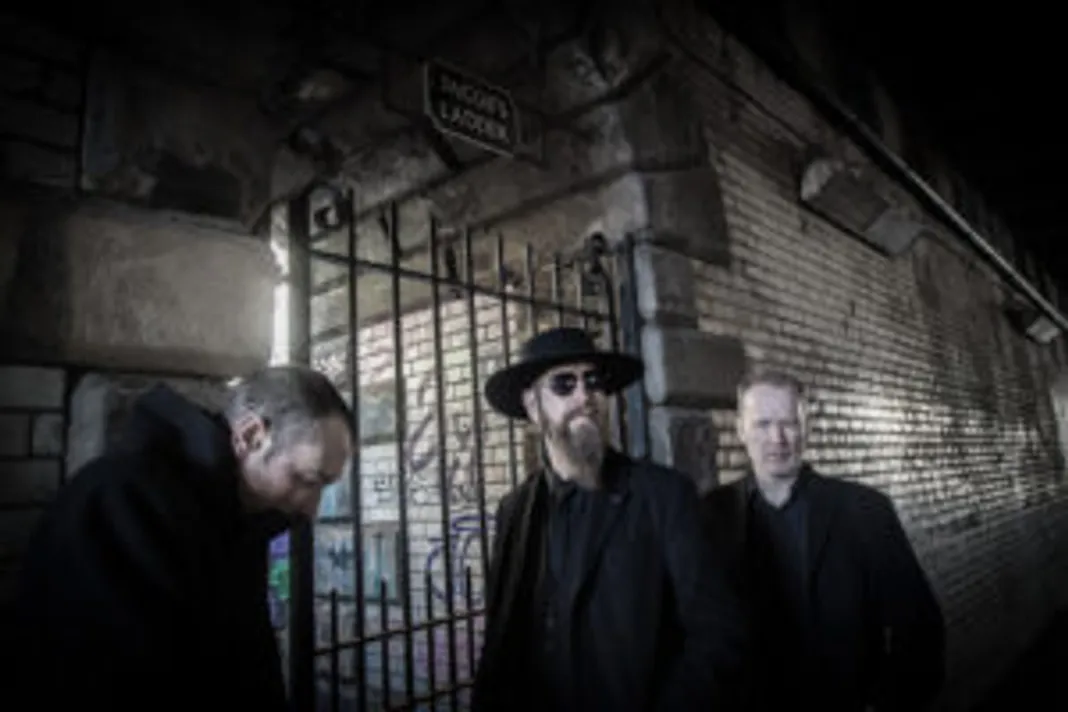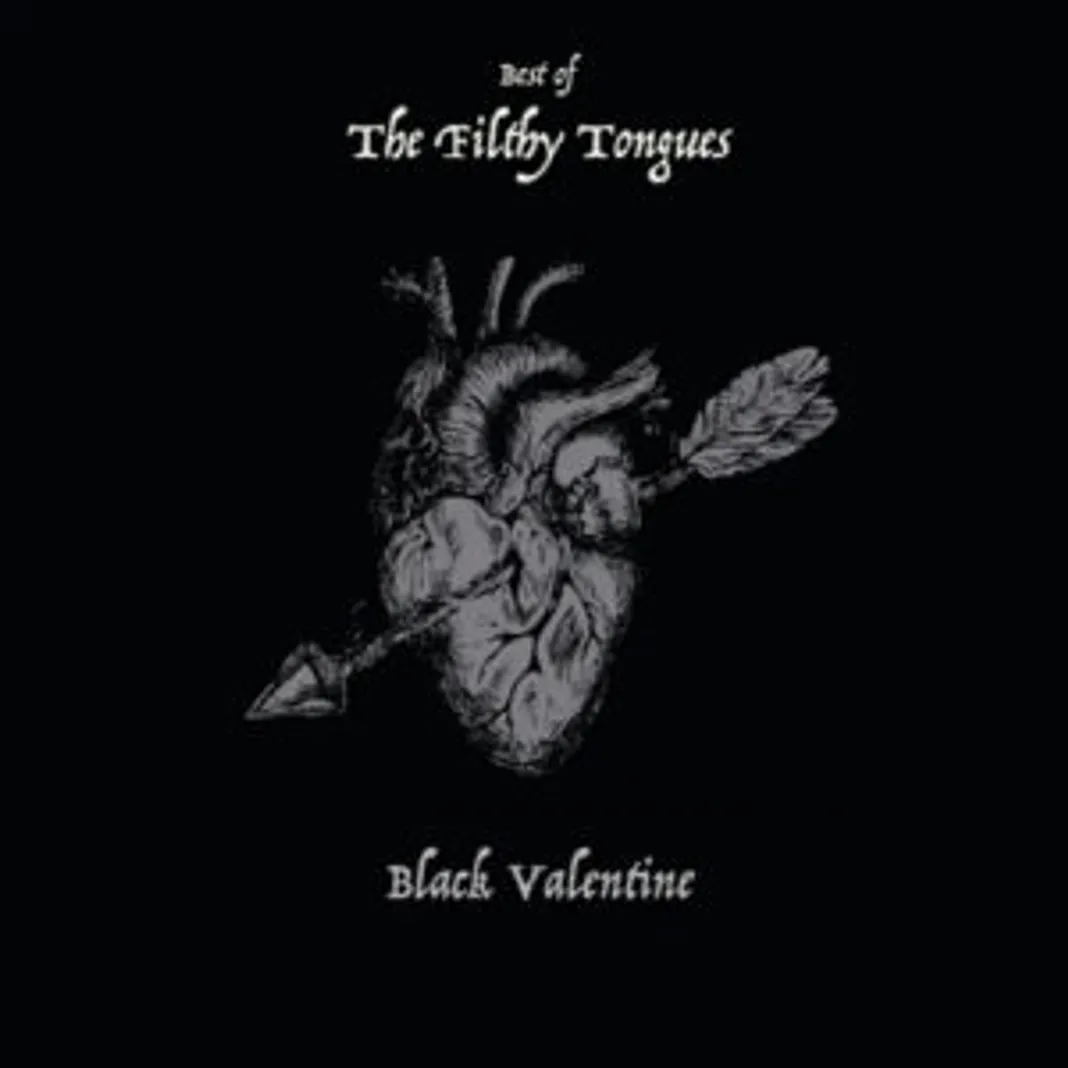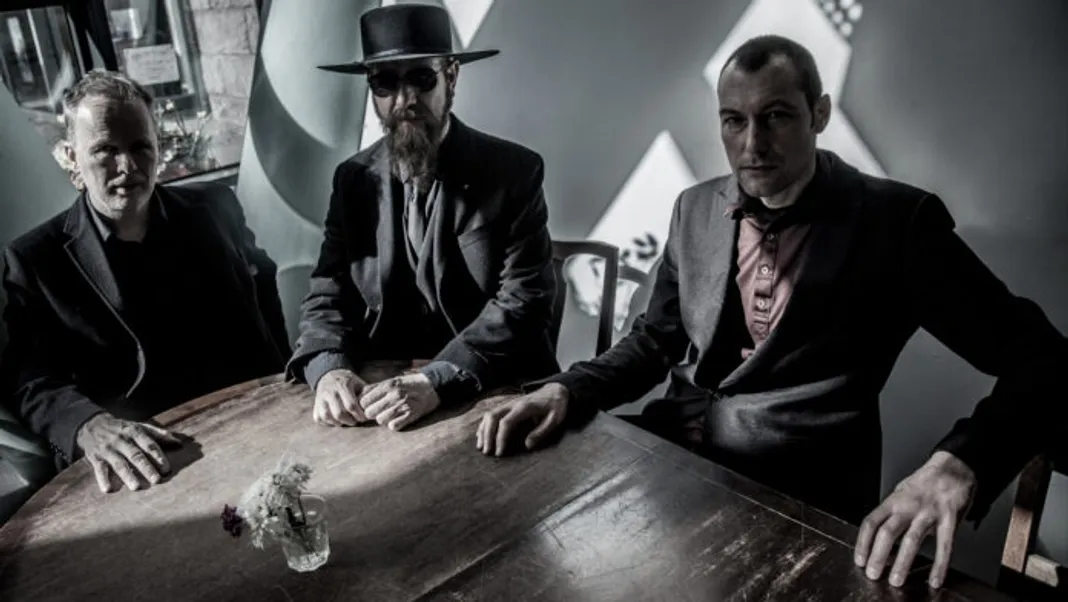Martin Metcalfe, Derek Kelly and Fin Wilson boast a legacy unmatched by any of their peers in the Scottish post-punk movement. As The Filthy Tongues they may have released four albums in the last decade, but it was the first of those, Jacob’s Ladder in 2016, that proved a game-changer for the trio whose legacy can be traced back to 1981 and cult Bathgate indie-rockers, Goodbye Mr Mackenzie.
Over more than four decades, frontman, Metcalfe, drummer Kelly and bassist Wilson have provided the foundations of both bands as well as those of the short-lived alternative rock group Angelfish, fronted by Shirley Manson, now of Garbage fame, and Isa and the Filthy Tongues, fronted by Stacy Chavis. All are ventures that assured The Filthy Tongues a fine pedigree. Nevertheless, the public reaction to the release of Jacob’s Ladder caught Metcalfe and his bandmates by surprise.
Below: Martin Metcalfe of The Filthy Tongues. Photo: Pavlos Papageorgiou
“Isa and the Filthy Tongues had been enjoyed and loved by people,” Metcalfe reveals to Hollywood.com, “but we got a ‘dropped-jaw’ response from critics and fans alike when we released Jacob’s Ladder. It was a reaction we never expected. We’d been working on the material for quite a while but didn’t know how good it was, really. That response was a game-changer in that it gave us the confidence to keep going in that direction.”
A celebration of Edinburgh’s old town and its dark past, Jacob’s Ladder and the band’s second album Back to Hell (2018) found the Filthy Tongues at their finest, honing the distinctive brand of Gothic rock that continues to flourish on their latest albums, In These Dark Places, released earlier this year, and the new “Best of” album Black Valentine. However, the same dystopian vibes can also be found on Goodbye Mr Mackenzie’s debut album if you listen carefully enough.
“The title track of the first Mackenzie album is very similar to the stuff we’re doing now, but that was the darkest track on that album,” recalls Metcalfe, the frontman for both bands. “Our manager at the time thought we should keep it for our third album, but it went on the first because we wanted it there. We felt it was was an important, exciting and cinematic track.”
He casts his mind back, reflecting on the Filthy Tongues’ origins and evolution. “When punk rock happened it was liberating for everyone who hadn’t sat in their bedroom for three years practicing to become a virtuoso. It allowed everyone to make music. That kind of fitted with my family background when I was growing up; they had a thing about everyone doing their turn at parties. I remember my aunty, who was very much like a granny figure, asking me to sing a song, even when it was just the two of us, and of her taking a lot of pleasure from hearing me sing. To me, that is punk. Everyone gets a shot. Music shouldn’t be elitist.”
He continues, “Goodbye Mr Mackenzie came out of that, but I understand that if people are going to pay money they want to see something more polished, professional .. and so, then came post-punk with bands like The Skids, Siouxsie and the Banshees, early punk players who developed their skills to evolve their sound into something interesting and unusual. So, having got into music through punk, as we picked up our instruments, we developed into post-punk, a lot of which was very dark.”
The fleeting darkness of Good Deeds and Dirty Rags was sidelined as Goodbye Mr Mackenzie found themselves pushed in a more commercial direction.
“As we were finding our feet, we fell under the influence of others,” explains Metcalfe. “A producer called Wilf Smarties developed us in the studio, and Elliott Davis, who managed Wet Wet Wet, took us on knowing we weren’t a pop band like them. Both pushed us in a more melodic direction that made us more accessible to everyone. Today we just do exactly what we want, which takes us back to that post-punk period. Still, there is definitely a linkk between Goodbye Mr Mackenzie and what we do now.”
That said, things could be very different for Metcalfe, Kelly and Wilson today without a commercial push, as there was one song from those days that changed everything, introducing the band to a much larger international following. That song was “The Rattler,” now an instantly recognizable signature of the Mackenzies.
“Elliot Davis was a brilliant manager, and ‘The Rattler’ wouldn’t have happened if it hadn’t been for him,” admits Metcalfe. “He just exploded when he heard the demo. He was a bit iffy about a lot of our material, then we sent him that and he went absolutely berserk. In a way, he’s largely responsible for the fact that we have some longevity because, at the time, we thought that song was {a} throwaway. But as it developed, and I don’t mean this to sound arrogant, it became a bit of a masterpiece. That was because of all the encouragement he and Wilf had given us.”
That early encouragement has since paid dividends. One of The Filthy Tongues’ early songs, “Big Star,” featured in the film Spread, starring Ashton Kutcher and Anne Heche, and “Holy Brothers” was adopted by the Leith football club Hibs for their Hibernian Reborn Campaign in 2017. These Dark Places, meanwhile, spent four weeks on the UK album charts and caused the U.S.-based entertainment website Playbill.com to declare the Filthy Tongues “… part Black Sabbath, part Black Keys, a group of people who have probably never not been the coolest people in any room …”
If they have indeed “never not been the coolest people,” it’s hardly surprising that only the coolest of the music industry’s cool kids want to work with The Filthy Tongues. From Talking Heads to Debbie Harry, the Ramones and more, they’ve all embraced the Scottish rockers.
“We’ve toured all around America, the North and South, with Shirley and Angelfish. Angelfish also supported The Ramones around the East Coast of America, and the Mackenzies later supported them at The Barrowland in Glasgow.
“Goodbye Mr Mackenzie also went around the UK with Debbie Harry and were produced by two of The Talking Heads, which was just incredible. We’d become such a commercial beast in the UK we felt like we had let go of our roots but being connected with Blondie, Talking Heads and The Ramones gave us a feeling that we had reconnected and were about to honor our past much more.”
It Went In A Wave

The Filthy Tongues. Photo By Karen Lamond
Honoring that past also brought Metcalfe back to the mic, having happily slipped into the back line for Angelfish and Isa and the Filthy Tongues.
“It went in a wave,” he muses. “It’s strange, I was the singer in the Mackenzies, then we did the side project, Angelfish, with Shirley singing. Then Shirley left and we resurfaced as Isa and the Filthy Tongues with Stacey singing on two albums, Addiction (2006) and Dark Passenger (2010). “Then I suppose I got my confidence back–I’d become and addict {and} alcoholic at the end of Goodby Mr Mackenzie and Angelfish, so I’d quit around 1996. I didn’t want to be upfront anymore. I was happy to just play guitar, and I still enjoy that role.”
He thinks for a moment before adding, “I am actually a shy person, really. It’s brutal, sometimes, the level of social disturbance I can have from being up there, even though I’m a social person as well. I think it’s because at heart I am a writer rather than a performer–David Bowie was like that too, horrendously uncomfortable on stage. But you develop into it, get confident, and can do it. I’m quite happy to be a guitarist. I feel good doing it. I don’t feel any jealousy towards the front person, yet I do lie to sing and I like to write and I like to try to deliver a story … it’s a confusing and contradictory thing.”
Metcalfe is in fine voice on the newly released album, The Best of The Filthy Tongues — Black Valentine, on which a selection of the band’s finest works can be found alongside two brand-new songs, “Underground City” and the title track, “Black Valentine.”
“We made sure it wasn’t a ‘Greatest Hits’ thing and more a sampler of the breadth of what we do, so it’s a really good way to get to know us,” he says. “They’re all songs that really underline where we are coming from musically. For example, the single, “Underground City,” has strongly been compared to “Sisters of Mercy. We really enjoyed “Sisters of Mercy”– it’s a song that shows our influences and underlines our agenda.”
Metcalfe and Kelly have been the co-writers for most of the material The Filthy Tongues have done. “It’s like Jagger and Richards,” Metcalfe says of their creative process. “Frequently we’ll write a song alone and then finish it off together or produce it together so it has a oneness about it. And that’s the nice thing about what we are doing now. Kelly, fin and I are very much on the same page; we deliver strong feelings in a deeper, darker, more potent way.
The Filthy Tongues’ way, no less.

The Best of the Filthy Tongues–Black Valentine is available to buy now from their record label Last Night From Glasgow in vinyl, CD or combo.
__
 Liam Rudden is an award-winning playwright, broadcaster and commentator on the arts. With more than 40 years experience working in theater and media, he was for two decades Entertainment and Festivals Editor of the Edinburgh Evening News. For more of his work, check out his website. He is also on X (formerly Twitter) @LiamRudden.
Liam Rudden is an award-winning playwright, broadcaster and commentator on the arts. With more than 40 years experience working in theater and media, he was for two decades Entertainment and Festivals Editor of the Edinburgh Evening News. For more of his work, check out his website. He is also on X (formerly Twitter) @LiamRudden.


